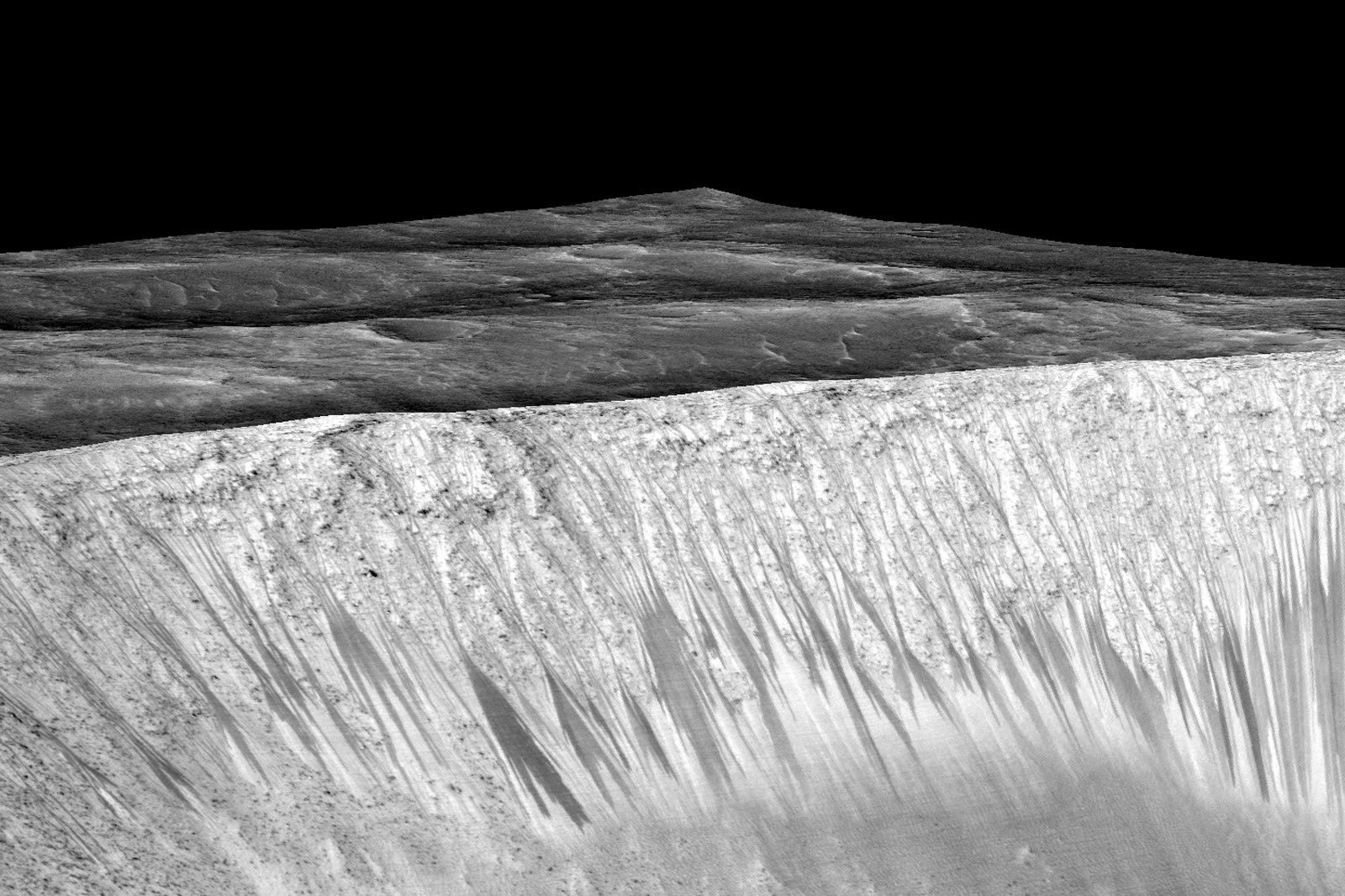Scientists have already found hints of liquid water on Mars… now, they want to take a close look at it. NASA has revealed that the Curiosity rover will investigate recurring slope lineae (those streaks you see above) around Mars’ Gale Crater in hopes of finding water. It’ll first take a photo with its mast camera to verify that there’s water in the first place. If there is, the machine will head over to collect samples. The agency would like to take those photos within a year, so you wouldn’t have to wait too long to get answers.
This doesn’t mean that Curiosity will find life. Mars’ harsh conditions (including fierce radiation) might preclude it, and that’s before you account for the rover’s sample sterilization process. Instead, think of the water mission more as a stepping stone. The findings it collects should help plan a mission intended to find signs of life, so even a mildly successful trip might lead to bigger and better things.
(31)

